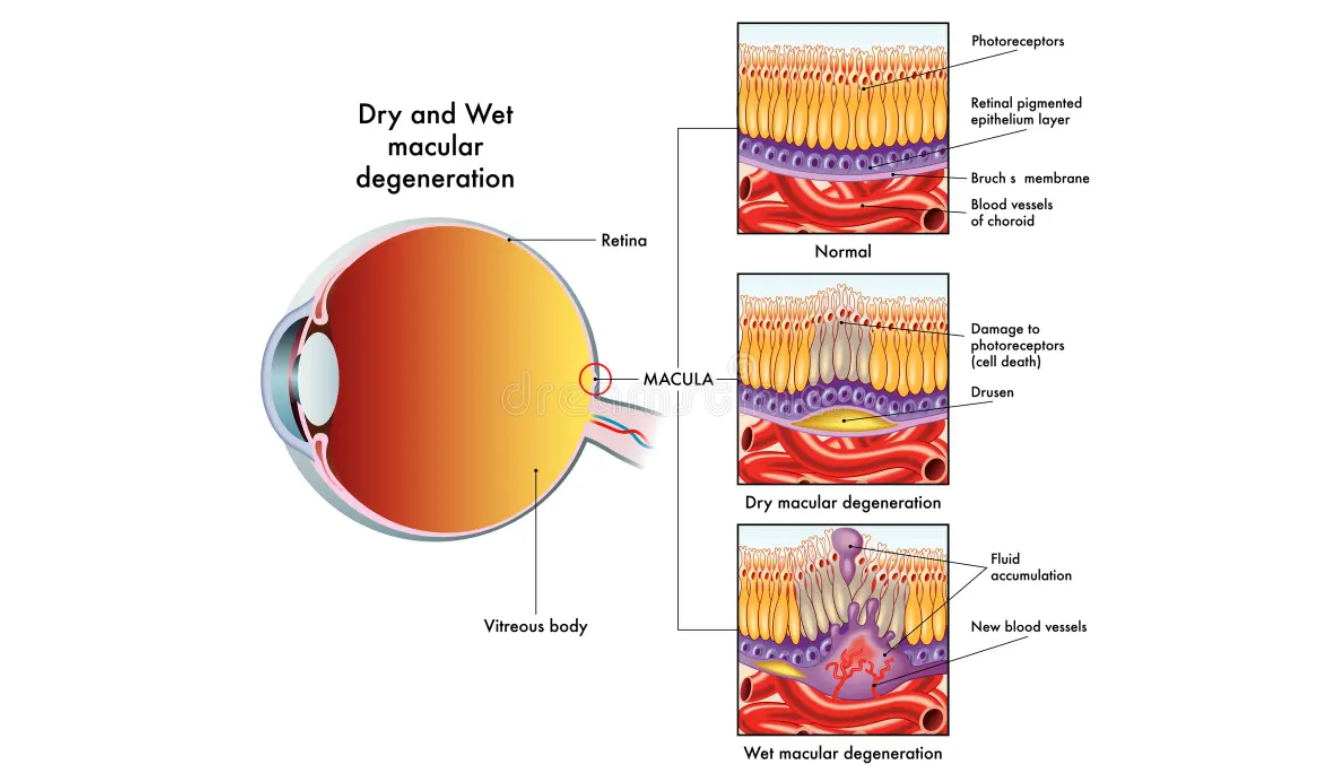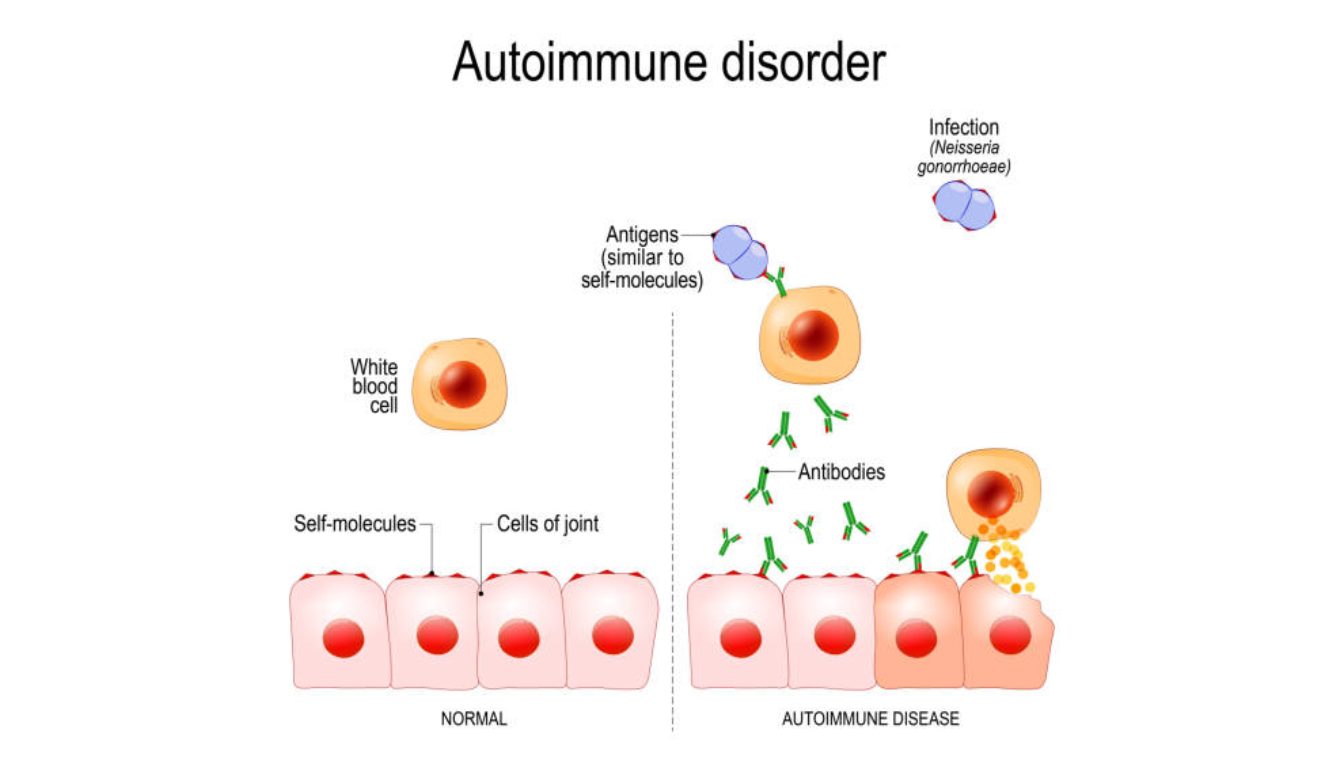
Is Your Gut Health and Eye Health Connected?
Key Takeaways
- The gut microbiome consists of over 100 trillion microorganisms, influencing body functions beyond digestion.
- Emerging evidence connects gut health with vision, highlighting the microbiome’s role in eye health.
- Microbial by-products from the gut regulate immune responses that impact the eyes.
- Gut dysbiosis (an imbalance in gut bacteria) may lead to inflammatory and degenerative eye conditions.
- Personalized treatments targeting the microbiome are on the rise, offering new ways to support eye health.
Discovering the Gut-Eye Axis and Communication Pathways
Microbial Metabolites and Eye Health
Microbial metabolites play an essential role in supporting eye health, highlighting the need for a balanced gut microbiome. By-products like short-chain fatty acids (SCFAs) produced by gut bacteria significantly impact eye health. SCFAs help regulate immune responses and reduce inflammation, both crucial for eye health. For instance, butyrate—a key SCFA—can lower inflammation in the eyes and protect against conditions like uveitis.
Bile acids, produced in the liver and modified by gut microbes, are also important. They regulate metabolism and inflammation, both vital for maintaining clear vision. Studies show that bile acids can help prevent or treat eye diseases by managing metabolic processes linked to eye health.
Gut disorders, such as Crohn’s disease or higher weight conditions, can disrupt this microbial balance, affecting the eyes. Research indicates that gut dysbiosis can contribute to eye diseases, emphasizing the importance of a healthy gut for supporting vision.
| Compound | Function in Eye Health |
|---|---|
| SCFAs (e.g., Butyrate) | Reduce inflammation, support immune function in eyes |
| Bile Acids | Regulate metabolism, control inflammation, support vision |
Overall, these findings position SCFAs and bile acids at the forefront of vision support, underscoring the importance of a balanced gut microbiome in protecting and enhancing eye health. Consequently, understanding how these metabolites function sets the stage for examining the consequences of their imbalance.
Influence of Diet on Gut Health and Eye Health
| Food Type | Gut Health Benefits | Eye Health Benefits |
|---|---|---|
| Fiber-rich Foods | Enhance gut microbiome | Support ocular health |
| Fermented Foods | Restore gut balance | May improve eye health |
| Prebiotic-rich Foods | Feed beneficial bacteria | Protect against eye diseases |
| Omega-3 Fatty Acids | Reduce inflammation | Prevent age-related eye conditions |
| Lutein and Zeaxanthin | N/A | Protect against oxidative damage |
The Impact of Fasting on Gut and Eye Health
Beyond what we eat, the timing of our meals also plays a crucial role in shaping our gut microbiome and, consequently, our eye health.
Fasting, especially intermittent fasting (IF), has been shown to positively influence gut health, which in turn supports eye function. Intermittent fasting involves cycles of eating and fasting, typically in a time-restricted window. Research suggests that IF can increase microbial diversity, reduce inflammation, and promote gut healing, all of which contribute to better eye health.
How Intermittent Fasting Improves Gut Health
During fasting, the gut gets a break from constantly processing food, allowing time for repair and regeneration. This process helps to restore the balance of gut bacteria, promoting a more diverse microbiome. With increased microbial diversity, inflammation is reduced throughout the body, including in the eyes. Studies have shown that individuals practicing intermittent fasting have lower levels of pro-inflammatory markers, which can protect against eye conditions like macular degeneration and dry eye syndrome.
Fasting and Reduced Eye Inflammation
Fasting has also been linked to lower levels of systemic inflammation, which is crucial for eye health. Inflammatory conditions like uveitis, retinitis, and conjunctivitis are often exacerbated by an imbalanced gut microbiome. By reducing inflammation through fasting, individuals may experience relief from chronic eye conditions. Moreover, fasting has been shown to enhance the body’s ability to handle oxidative stress, a key factor in the development of age-related eye diseases.
Lifestyle Factors Affecting Gut and Eye Health
In addition to diet and fasting, our daily habits such as physical activity, stress management, and sleep patterns further influence the delicate balance of our gut and eye health.
Our lifestyle choices significantly impact both gut health and eye health, leading to better overall health. Factors such as physical activity, stress management, and sleep patterns play a crucial role in maintaining a healthy gut microbiome, which in turn supports our vision.
Physical Activity
Staying active has immense benefits for our bodies, including our eyes. Regular exercise boosts gut health by increasing microbiome diversity and reducing inflammation, which supports optimal eye function. In fact, studies show that active individuals tend to have better eye health, highlighting the importance of maintaining an active lifestyle for vision protection.
Stress and Sleep Patterns
Equally important, stress and sleep are vital for gut health and eye health. Excessive stress and inadequate sleep can disrupt the gut microbiome, leading to increased inflammation that adversely affects the eyes. Moreover, managing stress and ensuring quality sleep help stabilize the microbiome, maintain immune balance, and prevent conditions like dry eyes. Incorporating stress-relief practices and establishing healthy sleep routines are essential steps toward supporting both gut health and eye health.
| Factor | Impact on Gut Health | Impact on Eye Health |
|---|---|---|
| Physical Activity | Increases microbiome diversity | Reduces inflammation, supports eye function |
| Stress | Disrupts microbiome balance | Increases systemic inflammation |
| Sleep Patterns | Stabilizes microbiome | Improves tear production, reduces dry eye symptoms |
The Role of Hormones in the Gut-Eye Axis
Complementing our lifestyle choices are hormonal fluctuations that significantly impact both gut and ocular functions.
Hormonal fluctuations can have profound effects on both gut health and eye function. Estrogen and progesterone, for example, play crucial roles in maintaining the stability of the gut microbiome and the health of the ocular surface. This connection is particularly relevant for women during menopause, when hormonal levels drop significantly, often leading to gut dysbiosis and dry eye syndrome.
Menopause and Dry Eye Syndrome
Menopausal women frequently report increased symptoms of dry eyes. This is largely due to a decrease in estrogen levels, which affects the balance of beneficial bacteria in the gut. Estrogen helps regulate both the immune system and the production of mucous membranes, which includes tear production in the eyes. Without sufficient estrogen, the gut microbiome may become imbalanced, leading to inflammation that exacerbates eye dryness. Hormone replacement therapy (HRT) has been shown to alleviate both gut dysbiosis and dry eye symptoms in many women, though more research is needed to optimize these treatments.
Estrogen and Ocular Surface Health
The ocular surface, which includes the cornea and conjunctiva, is particularly sensitive to hormonal changes. Estrogen helps regulate the production of tear film, which keeps the eyes moist and comfortable. With fluctuating estrogen levels, such as those experienced during pregnancy, menstruation, or menopause, the gut and ocular surface microbiomes can become compromised, leading to symptoms like dry, itchy eyes. Maintaining hormonal balance through diet, stress management, and possibly HRT can help support both gut and eye health.
Impact of Gut Dysbiosis on Eye Health
While external factors like hormones shape our gut health, internal imbalances—known as gut dysbiosis—can have profound effects on our vision.
Gut dysbiosis, an imbalance in gut bacteria, can trigger inflammatory responses that contribute to various eye conditions. Environmental toxins, such as heavy metals, pesticides, air pollution, and industrial chemicals, can have devastating effects on both the gut microbiome and eye health. These toxins disrupt the delicate balance of gut bacteria, leading to systemic inflammation that can harm the eyes. Additionally, direct exposure to environmental toxins can damage eye tissues, increasing the risk of diseases like glaucoma, macular degeneration, and cataracts.
Pollution and Eye Health
In urban areas with high levels of air pollution, research has shown a significant increase in cases of dry eyes, irritation, and eye-related diseases. Airborne toxins not only affect the eyes directly but also disrupt the gut microbiome, leading to increased inflammation throughout the body. The fine particulate matter in polluted air can be ingested or inhaled, affecting gut health and subsequently leading to ocular issues like conjunctivitis and ocular surface disorders.
Heavy Metals and Gut Dysbiosis
Heavy metals like lead, mercury, and arsenic are potent disruptors of gut microbiota. Exposure to these metals, often found in contaminated water or food, can kill beneficial bacteria, leading to gut dysbiosis. This imbalance contributes to systemic inflammation, which has been linked to the progression of age-related macular degeneration (AMD) and glaucoma. Reducing exposure to these toxins by choosing organic produce, filtering water, and avoiding certain seafood can support both gut and eye health.
Gut Health and Autoimmune Eye Conditions
Among the internal factors, autoimmune disorders emerge as significant contributors to gut imbalances that adversely affect eye health.
Autoimmune disorders, such as Sjögren’s syndrome, lupus, and rheumatoid arthritis, are known for their ability to impact multiple systems in the body. Recent research suggests a strong link between these autoimmune conditions and the health of our gut microbiome. Gut dysbiosis—an imbalance in gut bacteria—can trigger inflammatory responses that contribute to the development or exacerbation of autoimmune diseases, including those affecting the eyes.
Sjögren’s Syndrome and Dry Eyes
Sjögren’s syndrome primarily affects the glands responsible for producing moisture in the eyes and mouth, leading to chronic dryness and discomfort. Recent studies have shown that individuals with Sjögren’s syndrome often have altered gut bacteria compared to healthy individuals. The gut’s immune response, when disrupted, can lead to systemic inflammation, including in the eye tissues. Restoring gut balance through probiotics or dietary changes may help manage these symptoms and improve moisture production in the eyes.
Uveitis and Lupus
Uveitis, an inflammatory condition affecting the middle layer of the eye (uvea), is often associated with autoimmune diseases like lupus. Research has shown that gut dysbiosis in lupus patients may contribute to increased eye inflammation. Maintaining a balanced gut microbiome can potentially reduce the frequency and severity of uveitis flare-ups. Treatments targeting gut bacteria, such as fecal microbiota transplants (FMT), are being explored as future therapies to alleviate autoimmune eye conditions.
How Gut Health Affects Ocular Surface Microbiota
These systemic imbalances extend their influence to the microscopic communities on our eye surfaces, further linking gut health to ocular wellness.
Our gut health also influences the microbes present on the surface of our eyes. Specifically, the balance between good and bad bacteria in the gut can have a direct effect on eye health, contributing to conditions like dry eyes or more serious ocular surface disorders. Moreover, new technologies now allow scientists to study these tiny organisms in greater detail, providing insights into how gut health affects our eyes.
Furthermore, several factors, including antibiotics, diet, and environmental changes, can upset the balance of eye surface microbes. For instance, research shows that adopting a Mediterranean diet and increasing vitamin D intake can improve conditions like dry eyes. Consequently, this highlights how gut health and eye health are intricately connected through local and systemic immune responses.
Therefore, understanding these microbial influences paves the way for exploring specific compounds that support eye health.
Gut Health and Macular Degeneration

Age-related macular degeneration (AMD) is a severe condition that highlights the gut-vision connection. It shows the critical impact of gut health on vision.
AMD, the leading cause of blindness in older adults, is linked to the gut-retina axis. Researchers find that unhealthy gut microbes trigger chronic inflammation, which damages the eyes and contributes to AMD. Diets high in fat and low in nutrients can disrupt gut health, raising the risk of AMD.
Animal studies show that gut microbiome changes can affect gene expression in the retina. This offers insight into how gut health might prevent or slow AMD progression. For instance, germ-free (GF) mice display differences in gene expression, showing less eye inflammation and smaller lesions than others.
Additionally, a high-fat diet altered gene expression in GF mice. Mice with lower sugar intake showed fewer AMD signs and a healthier gut microbiome with more Bacteroidal bacteria. Dietary changes, like adding specific probiotics and extracts, also reduced eye damage in tests. Probiotics may strengthen the gut wall and boost immunity against AMD.
| Comparative Study | Findings |
|---|---|
| GF vs. SPF mice | 660 differentially expressed genes in RPE/choroid; 396 in retinal transcriptome |
| High-fat diet in GF mice | 53 differentially expressed genes in retinal transcriptome; 649 in RPE/choroid |
| High-glycemia diet | AMD-associated phenotypes with altered gut microbiome |
| Low-glycemia diet | Protection from AMD features; enriched Bacteroidales |
Have you ever considered how your gut microbiome might influence your risk of developing AMD? Indeed, more research is needed to understand how gut bacteria affect AMD in people fully. Yet, the link between gut health and macular degeneration remains a keen interest in science. These findings could lead to new ways to manage and stop eye diseases, improving our quality of life as we age.
The Impact of Antibiotics on Gut and Eye Health
Addressing gut imbalances often involves medical interventions, including the use of antibiotics. While antibiotics are essential for treating infections, their impact on the gut microbiome can have unintended consequences for eye health.
Antibiotics and Gut Dysbiosis
Antibiotics can disrupt the delicate balance of the gut microbiome, leading to gut dysbiosis, where harmful bacteria may overgrow while beneficial bacteria diminish. This imbalance not only affects digestion and overall health but also has downstream effects on the eyes. Conditions like dry eye disease are becoming more prevalent due to this microbial disruption.
Antibiotics’ Effects on Eye Health
Research has found that antibiotics may indirectly harm eye health by disturbing the gut microbiome. For instance, increased screen time and mask-wearing during the COVID-19 pandemic have contributed to a rise in dry eye issues. Antibiotic-induced gut dysbiosis can exacerbate these symptoms by increasing systemic inflammation, adversely affecting the eyes.
Mitigating Antibiotic Effects with Medical Interventions
Probiotics and Prebiotics for Eye Health
Building on the foundational role of probiotics in mitigating antibiotic-induced gut dysbiosis, incorporating probiotics and prebiotics into our daily diet offers a comprehensive approach to supporting gut and eye health.
Probiotics: Nurturing Beneficial Gut Bacteria
Probiotics are live beneficial bacteria that help maintain and restore a balanced gut microbiome. By introducing strains such as Lactobacillus and Bifidobacterium, probiotics reduce the production of pro-inflammatory cytokines linked to eye conditions like dry eye syndrome and uveitis. Research in both animals and humans has demonstrated that probiotic supplementation can enhance ocular surface health and alleviate eye discomfort caused by inflammation.
Prebiotics: Feeding the Good Bacteria
Prebiotics are non-digestible fibers in foods like garlic, onions, bananas, and oats. They nourish beneficial gut bacteria, promoting their growth and activity. By supporting the proliferation of these good bacteria, prebiotics help maintain gut balance and reduce systemic inflammation, positively impacting eye health. For example, inulin, a type of prebiotic fiber, has been shown to improve gut health and may indirectly support eye health by enhancing immune function and reducing inflammatory responses.
As research into the gut-eye connection progresses, personalized medicine is emerging as a promising approach. This method tailors treatments to an individual’s unique gut microbiome, creating more effective strategies for eye health. Personalized microbiome therapies target specific imbalances in gut bacteria, offering comprehensive solutions for eye conditions like uveitis, dry eyes, and macular degeneration.
About 53% of our genetics influence our gut microbes, making this connection crucial for custom eye treatments. Precision medicine aims to revolutionize eye care by involving dietitians and functional medicine experts. They address nutritional gaps that affect both gut and eye health. For instance, understanding how variations in gut microbiota relate to allergic eye conditions helps create more targeted treatments. Probiotics that alleviate ocular allergies are also part of these effective, personalized solutions.
| Condition | Percentage |
|---|---|
| Infants with gut microbiota variations related to allergic diseases | 74% |
| Children with low serum vitamin D levels in vernal keratoconjunctivitis | 45% |
| Risk factors associated with allergic eye conditions and eczema (Schoolchildren in Uganda) | 31% |
| Global children affected by allergic diseases and asthma | 29% |
| Individuals with chronic widespread pain linked to gut microbiome alterations | 20% |
| Comorbid allergic rhinitis and asthma contributing to allergy-related issues | 12% |
| Children experiencing allergic conjunctivitis | 11% |
| Individuals suffering from ocular allergies globally | 7% |
| Adolescents at risk of “Dry Mouth” and “Flammer” syndromes | 5% |
| Patients with ocular involvement in atopic diseases | 3% |
Consequently, personalized microbiome therapy can directly address these issues, offering tailored treatments that improve both gut health and eye health. When patients understand the gut-eye link, they can adopt better lifestyle habits that support their overall wellness.
Future Directions in Gut Microbiome Research and Ophthalmology
Looking ahead, ongoing research continues to reveal the intricate connections between the gut microbiome and eye health, leading to innovative therapies.
Microbiome research advancements uncover vital links between gut bacteria and eye health. By better understanding these microorganisms, scientists are developing new methods to treat and prevent eye diseases.
One pivotal effort is the Earth Microbiome Project. It has mapped microbial communities worldwide, providing a solid foundation for current and future studies. Research by Gilbert et al. (2014) and Mathewson et al. (2016) shows how gut microbiome metabolites can influence diseases, including eye conditions.
Additional studies by Doan et al. (2016) and Willcox (2013) have explored the microbiota on the eye’s surface. These findings are crucial for developing treatments that enhance eye health by managing these microbial communities.
| Study | Year | Key Contributions |
|---|---|---|
| Gilbert et al. | 2014 | The success of the Earth Microbiome Project |
| Mathewson et al. | 2016 | Influence of gut microbiome-derived metabolites |
| Doan et al. | 2016 | Insights into Ocular Surface microbiota |
| Willcox | 2013 | Characterization of normal ocular surface microbiota |
Ongoing research continues to explore the profound ways in which gut microbes impact eye health. These studies are laying the groundwork for innovative therapies that utilize this knowledge to improve vision and prevent eye diseases. Looking ahead, integrating personalized medicine with microbiome insights promises to transform eye care. Treatments tailored to an individual’s unique microbiome profile could lead to more effective and customized approaches to maintaining and enhancing eye health.
Conclusion: Strengthening the Gut-Eye Connection
Reflecting on the connection between gut health and eye wellness, it’s clear that nurturing our microbiome is crucial for perceiving the vibrant world around us. Just as the introduction invites us to imagine a world of sharp details and vivid colors, our journey has shown that a healthy gut is essential for maintaining clarity and brilliance in vision.
By adopting a balanced diet, managing stress effectively, and caring for our gut, we support both our digestive system and our ability to see the world in vivid detail. The research and treatments discussed highlight the potential of a holistic approach to health, where every dietary choice and lifestyle change enhances our visual experience.
Ultimately, this exploration shows that a vibrant, detailed view of the world starts from within. Just as a colorful morning begins with the first light, a healthy gut sets the foundation for clear and bright vision. So, when you admire a sunrise or the colors of a blooming garden, remember that your gut health plays a vital role in making those moments truly beautiful.
FAQ
Q: How does the gut microbiome influence eye health?
A: The gut microbiome regulates immune responses and reduces inflammation, essential for maintaining healthy vision. Imbalances can disrupt gut-eye communication, leading to eye diseases.
Q: What is the gut-eye axis?
A: The gut-eye axis communicates between gut microbes and eye health. It involves microbial metabolites that influence the retina and can impact retinal diseases through immune and inflammatory pathways.
Q: Can gut dysbiosis contribute to eye diseases?
A: Yes, gut dysbiosis—an imbalance in the gut microbiome—can contribute to various eye diseases. It has been associated with inflammatory eye conditions such as uveitis, as well as age-related macular degeneration (AMD) and diabetic retinopathy. This imbalance disrupts the body’s inflammatory processes, adversely affecting retinal health and overall eye function.
Q: What role do short-chain fatty acids (SCFAs) play in eye health?
A: Short-chain fatty acids (SCFAs), such as butyrate, produced by gut bacteria play a vital role in maintaining eye health. SCFAs help reduce inflammation and regulate immune responses within the body, which are essential for preventing and treating various eye diseases.
Q: How does diet impact gut and eye health?
A: Diet plays a crucial role in both gut and eye health. Consuming a balanced diet rich in fiber, prebiotics, and probiotics fosters a healthy gut microbiome, which in turn supports eye health by regulating inflammation and immune responses.
Q: What is the potential connection between gut health and macular degeneration?
A: The connection between gut health and macular degeneration lies within the gut-retina axis. An imbalanced gut microbiome can trigger chronic inflammation, which may damage the retina and contribute to the development of age-related macular degeneration (AMD).
Q: How do antibiotics and probiotics affect eye health?
A: Antibiotics can disrupt the gut microbiome by eliminating beneficial bacteria, leading to gut dysbiosis, which can negatively impact eye health through increased inflammation and immune imbalance. Conversely, probiotics help restore and maintain a healthy gut microbiome, reducing inflammation and supporting immune function, which benefits vision.
Q: What is the gut-brain axis and its relevance to vision?
A: The gut-brain axis is the bidirectional communication network between the gut microbiome, the brain, and the eyes. Gut microbes, including those that regulate vision, produce compounds that influence the nervous system. Imbalances in the gut microbiome can disrupt this communication, leading to altered neural and immune responses that may contribute to developing eye diseases.
Q: How do hormones affect gut and eye health?
A: Hormonal fluctuations, especially during menopause, can disrupt gut microbiota and exacerbate conditions like dry eye syndrome. Managing hormonal balance through diet, stress reduction, or hormone replacement therapy (HRT) can support both gut and eye health.
Q: How does fasting impact gut and eye health?
A: Intermittent fasting has been shown to improve gut health by promoting microbial diversity and reducing inflammation. This reduction in inflammation benefits eye health, protecting against conditions such as dry eye syndrome and macular degeneration.
Q: What environmental toxins should I avoid to maintain good gut and eye health?
A: Avoid exposure to heavy metals, pesticides, and air pollution, as these can harm gut bacteria and contribute to eye diseases like AMD and glaucoma. Choosing organic produce and using water filters can help mitigate these risks.
Q: Can lifestyle factors affect gut and eye health?
A: Yes, lifestyle factors significantly influence both gut and eye health. Regular physical activity enhances the diversity of beneficial gut microbes and reduces inflammation, which supports eye function and vision. On the other hand, excessive stress and inadequate sleep can disrupt the gut microbiome, increasing inflammation and negatively impacting eye health.
Q: Are specific probiotics or prebiotics beneficial for eye health?
A: Probiotics like Lactobacillus and Bifidobacterium can reduce inflammation and support ocular health. Prebiotics such as inulin in foods like garlic and onions feed good bacteria, promoting gut health and reducing eye inflammation.
Q: Why is personalized medicine important for eye health?
A: Personalized medicine is crucial for eye health as it allows customized treatments based on an individual’s unique gut microbiome profile. By tailoring therapies to address specific microbial imbalances, personalized medicine can enhance the effectiveness of treatments for various eye conditions, such as uveitis, dry eyes, and macular degeneration.
Q: What are the future directions in gut microbiome research and ophthalmology?
A: Future directions in gut microbiome research and ophthalmology focus on integrating microbiome insights into eye care practices. Researchers aim to understand further the mechanisms by which gut bacteria influence vision and ocular health, potentially leading to the development of novel treatments and preventive strategies for eye conditions.
Q: Can gut bacteria really impact the development of cataracts?
A: While cataracts are primarily age-related, emerging research suggests that gut health influences systemic inflammation, which could contribute to faster cataract development.
Source Links
Gut-Eye Axis Mechanisms and Influences
- Unveiling the gut-eye axis: how microbial metabolites influence ocular health and disease
- Gut Microbiome in Retina Health: The Crucial Role of the Gut-Retina Axis
- Frontiers | Unveiling the gut-eye axis: how microbial metabolites influence ocular health and disease
- Frontiers | Gut Microbiome in Retina Health: The Crucial Role of the Gut-Retina Axis
- The gut – eye axis: can our intestines influence our eye health?
- The Gut–Eye Axis: Lessons Learned from Murine Models
- Influence of gut microbiota on eye diseases: an overview
- Frontiers | The Role of Short-Chain Fatty Acids From Gut Microbiota in Gut-Brain Communication
Therapeutic Potential and Treatment Strategies
- Targeting the Gut–Eye Axis: An Emerging Strategy to Face Ocular Diseases
- The Gut Microbiome Affects Eye Disease, And May Open New Therapy Options
- Frontiers | Microbiota and Ocular Diseases
Diet, Microbiome, and Eye Health
- The Gut-Brain-Eye Connection: How Nutrition Affects Eye Health in older people
- The Impact of Probiotics and Prebiotics on Dry Eye Disease Signs and Symptoms
- Gut Health and Vision: How our Microbiome Affects our Eyes — ART Vision
- Gut Health & Dry Eye: The Surprising Connection – The Eye Center Pembroke Pines, FL
Specific Eye Conditions and Gut Microbiome Correlation
- Implication of gut microbiome in age-related macular degeneration
- Age-related Macular Degeneration & the Gut Microbiome
- Dry eye: One type of bacteria in eye microbiome may signal disease
- An Oral Probiotic Can Treat Dry Eye Disease
Microbiome, Inflammation, and Immune Response
- Short chain fatty acids ameliorate immune-mediated uveitis partially by altering migration of lymphocytes from the intestine – Scientific Reports
- Clarifying the effect of gut microbiota on allergic conjunctivitis risk is instrumental for predictive, preventive, and personalized medicine: a Mendelian randomization analysis
- Ocular Surface Microbiome: Influences of Physiological, Environmental, and Lifestyle Factors
General Overviews and Reviews on the Gut-Eye Connection
- The Gut Microbiome’s Impact on the Retina
- The Gut-Eye connection: How digestive health impacts vision and eye diseases – Times of India
- The Gut-Eye Axis: Unlocking the Key to Comprehensive Patient Care
- The microbiome and ophthalmic disease
- Your Gut’s Influence on the Development of Blinding Eye Diseases – Fighting Blindness Canada (FBC)
- Gut Microbes and Eye Disease
- Perspectives on probiotics – EyeWorld
- Gut & Eye Health | Eye Sight | Healthy Vision
Microbiota and Their Specific Impact on Vision
Smartcric
Smartcric Pretty! This has been a really wonderful post. Many thanks for providing these details.
Belli Health
Thank you for your feedback and support. I am happy you found the post insightful!
















































2 comments